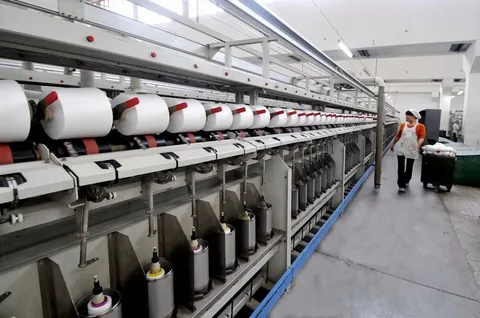Being one of the oldest and most prestigious fabrics throughout the ages wool has been pretty consistent with its presence in the Indian textile industry. This paper focuses on choosing the right wool producer to ensure that business entities and consumers of textile products obtain the best quality. In this article, you will find invaluable recommendations to identify the best wool manufacturers in India and successfully meet your requirements.
Traditional methods and contemporary production procedures define the intricate and varied terrain of the Indian wool industry. Wool production is a vital economic activity that blends cultural history with modern textile innovation, whether in the rocky regions of Rajasthan or the undulating hills of Himachal Pradesh.
1. Understanding Wool Quality Standards
The foundation of outstanding wool production is quality. Astute consumers need to cultivate the ability to assess wool from a variety of perspectives. Understanding the essential traits that distinguish high-quality wool products is the first thing to take into account.
Wool quality is significantly influenced by fiber length. Textiles with longer fibers tend to be smoother and more resilient, able to tolerate repeated use without losing their structural integrity. Consistent fiber length is a sign of a manufacturer’s dedication to creating high-quality goods.
2. Regional Wool Manufacturing Expertise
India’s varied topography adds something special to its capacity to produce wool. While each region offers unique qualities and specific knowledge, other regions specialize in different methods of producing wool.
The Himalayan states, especially Himachal Pradesh and Uttarakhand, are known for their superior production of soft, fine wool from native sheep breeds. To produce wool with outstanding thermal qualities and amazing softness, these producers take advantage of high-altitude environmental circumstances.
3. Technological Capabilities and Infrastructure
The production of wool in the modern day requires advanced technological infrastructure. To guarantee constant, high-quality output, prospective buyers must thoroughly evaluate a manufacturer’s technological skills.
Systems for quality control are yet another important technological component. Extensive testing procedures, such as microscopic fiber analysis and exacting quality inspections, distinguish outstanding manufacturers from mediocre ones. Seek out producers who have internationally recognized certifications and strong quality control systems.
4. Sustainability and Ethical Production
Modern wool production necessitates a comprehensive strategy that takes ethical and environmental factors into account. Animal welfare and sustainable production methods are given top priority by ethical manufacturers.
Making sure sheep receive humane treatment, proper feeding, medical attention, and little stress during shearing is a key component of ethical sourcing. In the competitive market, manufacturers who uphold transparent supply chains and offer substantiated animal welfare data are distinguished.
5. Customization and Flexibility
Superior wool producers are distinguished by their capacity to provide tailored solutions. Companies looking for certain textile qualities need manufacturers who can adjust to their needs.
Allowing for a variety of specifications, such as color changes, specialty treatments, and distinctive fiber blends, is a key component of production flexibility. Manufacturers with the ability to offer customized solutions exhibit technological know-how and customer-focused strategies.
6. Cost-Effectiveness and Pricing Structures
Quality is still the first priority, but in order to build wise manufacturing alliances, it is essential to comprehend pricing dynamics. A thorough cost analysis goes beyond the original cost of a product.
Buyers are assisted in making logical decisions by transparent price systems that explicitly define material costs, processing costs, and additional fees. Detailed quotes from reputable manufacturers allow for precise budget planning and comparison analysis.
Price is heavily influenced by volume factors. Flexibility and market adaptability are displayed by manufacturers who provide scalable pricing methods that can handle both small and large production runs.
7. Compliance and Certifications
International certifications and standards are important markers of a manufacturer’s dependability and dedication to quality. The compliance credentials of a manufacturer must be carefully examined by buyers.
Top manufacturers are further distinguished by industry-specific certifications. Deep domain knowledge and a dedication to ongoing development are demonstrated by specialized certificates relating to wool.
8. Communication and Customer Support
Successful manufacturing collaborations are built on effective communication. In a competitive market, manufacturers which provide a strong infrastructure for customer support stand out.
Collaboration is made easier by responsive communication channels, such as several contact choices and dedicated relationship managers. Manufacturers who place a high value on prompt, clear communication develop enduring connections and trust.
A manufacturer’s value offer is further enhanced by post-production support, which includes technical advice, quality control, and possible rework allowances. The most outstanding manufacturers see every encounter as a chance to show off their knowledge and dedication.
Conclusion
Selecting India’s top wool and yarn manufacturing companies in India necessitates a comprehensive, calculated strategy. You can choose manufacturing partners who meet your unique needs by methodically assessing quality, technological prowess, production strengths, and ethical standards. To make well-informed selections, take the time to carry out thorough evaluations, ask for specific information, and possibly visit manufacturing facilities.
